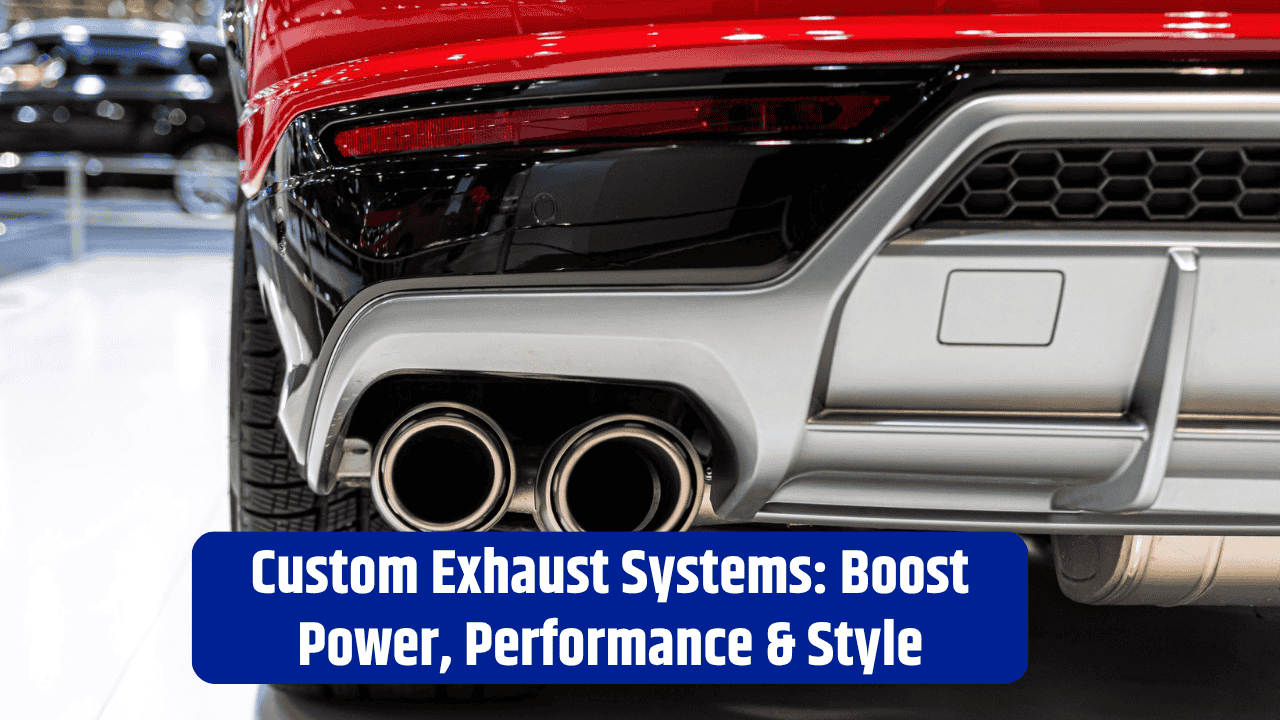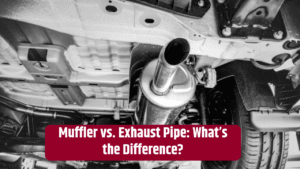A custom exhaust system does more than just give your car a deeper growl—it can significantly boost your vehicle’s performance, fuel efficiency, and style. Whether you’re a weekend racer, a car enthusiast, or simply looking to improve your ride’s responsiveness, upgrading your exhaust system is one of the most effective mods available. Let’s explore how custom exhausts work, their benefits, and what to consider before installation.
What Is a Custom Exhaust System?
A custom exhaust system replaces or enhances the factory-installed exhaust components to optimize airflow and reduce backpressure. This helps the engine “breathe” better, resulting in improved performance. Unlike stock systems, custom setups are tailored to your vehicle’s specifications, giving you better efficiency and a unique sound profile.
There are three main types of exhaust modifications:
- Axle-back: Replaces the exhaust system from the rear axle to the tip.
- Cat-back: Replaces everything from the catalytic converter back.
- Header-back: Replaces the entire exhaust system from the headers to the tip.
Performance Benefits
Upgrading to a custom exhaust system offers several performance advantages:
Increased Horsepower and Torque
Custom systems reduce engine backpressure, allowing for faster expulsion of exhaust gases. This can result in noticeable gains in horsepower and torque—often 5% to 10%, depending on the vehicle and exhaust type.
Improved Fuel Efficiency
A more efficient exhaust system can improve the air-fuel mixture, helping the engine run more efficiently. While the MPG gain isn’t massive, it can be a nice bonus over time.
Better Throttle Response
Less restriction in the exhaust flow allows the engine to respond more quickly when you press the gas pedal. This is especially noticeable in manual transmission cars or during spirited driving.
Sound and Style Enhancements
Custom exhausts are known for enhancing the sound of a vehicle. You can choose from mild, refined tones to aggressive roars, depending on your preference. Materials like stainless steel or titanium also give your car a visual edge with polished or colored tips.
Types of Exhaust Sounds:
| Sound Profile | Description | Common Setup |
|---|---|---|
| Deep & Aggressive | Loud, throaty growl | Straight-pipe, dual |
| Refined & Smooth | Balanced tone, not overly loud | Cat-back with muffler |
| High-pitched Sport | Sharp, high-RPM scream | Header-back, resonator |
Key Components in a Custom Exhaust
Understanding the parts involved can help you make an informed choice:
- Headers: Improve the flow of exhaust gases from the engine.
- Mid-pipes (X-pipe, H-pipe): Balance exhaust flow for better performance and tone.
- Mufflers: Control noise levels.
- Resonators: Further fine-tune sound and reduce drone.
- Exhaust tips: Customize the appearance of the rear end.
Materials: What to Choose
The material used impacts durability, weight, and cost.
| Material | Pros | Cons |
|---|---|---|
| Stainless Steel | Rust-resistant, durable | Heavier than titanium |
| Aluminized Steel | Budget-friendly, corrosion resistant | Shorter lifespan |
| Titanium | Ultra-light, high-end aesthetic | Expensive |
Considerations Before Upgrading
Before installing a custom exhaust system, keep the following in mind:
- Local laws and emissions regulations: Some systems may not be street-legal in all states.
- Warranty impact: Modifications may void your vehicle’s warranty.
- Installation: DIY is possible, but professional installation ensures optimal performance.
- Budget: Costs vary widely—from a few hundred dollars to several thousand.
Is It Worth It?
If you’re seeking a noticeable performance boost, a more engaging driving experience, and a way to make your vehicle stand out, then yes—a custom exhaust system can be a worthwhile investment. Just be sure it aligns with your goals, budget, and local regulations.
FAQs
Will a custom exhaust void my car’s warranty?
It can, depending on the manufacturer and the extent of the modification. Always check your warranty terms.
Can I install a custom exhaust myself?
If you’re mechanically inclined, axle-back and cat-back systems can be DIY projects. Header-back systems are more complex and usually require a professional.
Will my car be louder with a custom exhaust?
Likely yes, but you can choose systems designed for mild, moderate, or aggressive sound levels.
Do I need to tune my engine after installing a custom exhaust?
Not always, but a tune can maximize performance gains—especially with a header-back setup.
How much horsepower can I gain?
Depending on the system and engine, expect gains between 5 to 20 horsepower.



